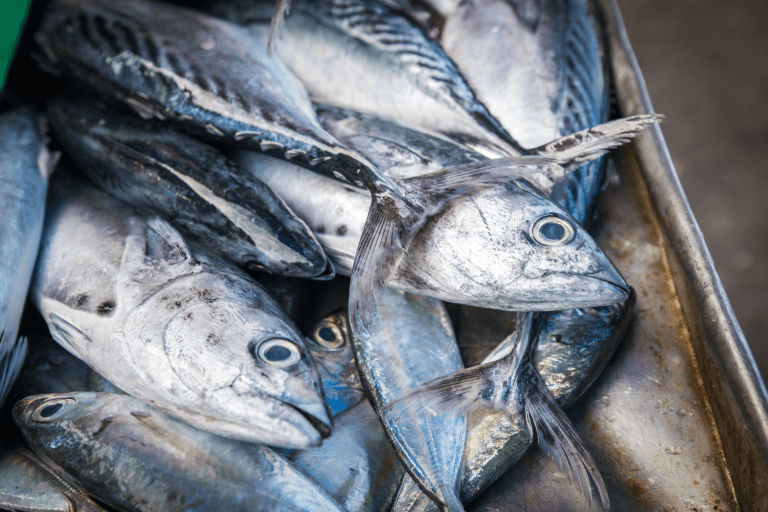As instrumental parts of the tuna supply chain, GTA Partners can have an influence in implementing practices and improvements to achieve the GTA’s vision.
The market can act as a powerful driver of change within fisheries. Competition for business encourages fisheries to align with practices that make them more desirable to wholesalers and retailers who are concerned with the transparent, sustainable and ethical sourcing of tuna.
By setting minimum standards for vessel transparency, tuna sourcing and by identifying, preventing, mitigating and remediating human rights at work abuses in their supply chains, Partners can promote change from within, while we advocate for accompanying regulations.

Measures that involve making data related to vessel identification and analysis publicly available, so that an assessment can be made on whether a vessel is abiding by the relevant regulations.
Information ascertained by the Vessel Monitoring System (VMS) or Automatic Identification System (AIS) can be used by Global Fishing Watch (GFW) to assess a vessel’s level of compliance.
To incentivise more fisheries to improve transparency and comply with regulations, GTA Partners are encouraged to purchase their tuna products from countries that require flagged vessels to publicly share vessel tracking data.
Authorised Vessel lists can indicate the level of compliance to relevant authorities, meaning that compliant fishers can be identified and rewarded by accelerated port entry for the landing of fish. Non-compliant vessels immediately stand out due to the absence of information and are prioritised for inspection when seeking to land fish.
To incentivise more fisheries to improve transparency and comply with regulations, GTA Partners are encouraged to purchase their tuna products from countries that publicly share vessel license and authorisation lists
Unique vessel identifiers (UVIs) such as International Maritime Organisation (IMO) numbers help to improve maritime safety and security and to reduce illegal activities. An IMO number remains linked to a fishing vessel’s hull for its lifetime,
preventing easy changes to identity and allowing fishing activities to be tracked across oceans and over time. Vessels
12m in length and above leaving national waters, and all vessels 100 gross tonnes and above, regardless of where they operate, are eligible to obtain an IMO number.
All major Tuna RFMO mandate the use of IMO numbers but implementation is lagging. IMO numbers are free to
obtain via IHS Maritime.
To incentivise more fisheries to improve transparency and comply with regulations, GTA Partners are encouraged to purchase their tuna products from vessels with an IMO number (where applicable).
In a free and open market, businesses are at liberty to determine what criteria they factor into sourcing decisions. This includes sustainable fishing practices. There are a number of accreditations available that indicate a fishery’s commitment to science-based management plans that ensure the impacts of their activities on the environment are minute or are on a pathway to sustainability.
To incentivise more fisheries to take steps to improve sustainable practices, GTA Partners are encouraged to purchase tuna products from fisheries that have a GSSI- recognised certification or are on a pathway to sustainability (for example in a credible Fishery Improvement Project).

In an era of socially conscious consumers, retailers and wholesalers are held accountable not only for the environmental cost of production but also for labour exploitation and the risks to human safety and rights that might be present in earlier stages of the supply chain.
It is incumbent on businesses to make assessments within their own supply chain to ensure that human rights are respected and safety upheld. Any risks that are identified might be mediated by reporting the issue to relevant authorities or ceasing dealings with the culpable processors or fisheries.
To incentivise supply chains to improve labour standards and respect human rights, GTA Partners are encouraged to undertake risk assessments in their own supply chains at processor and vessel level. They are encouraged to demonstrate measurable progress against a timebound plan to address human rights risks, share company policies on human rights publicly and with supply chain stakeholders, that include a commitment to remediation.
Partners are also encouraged to publicly commit to the Employer Pays Principle.
